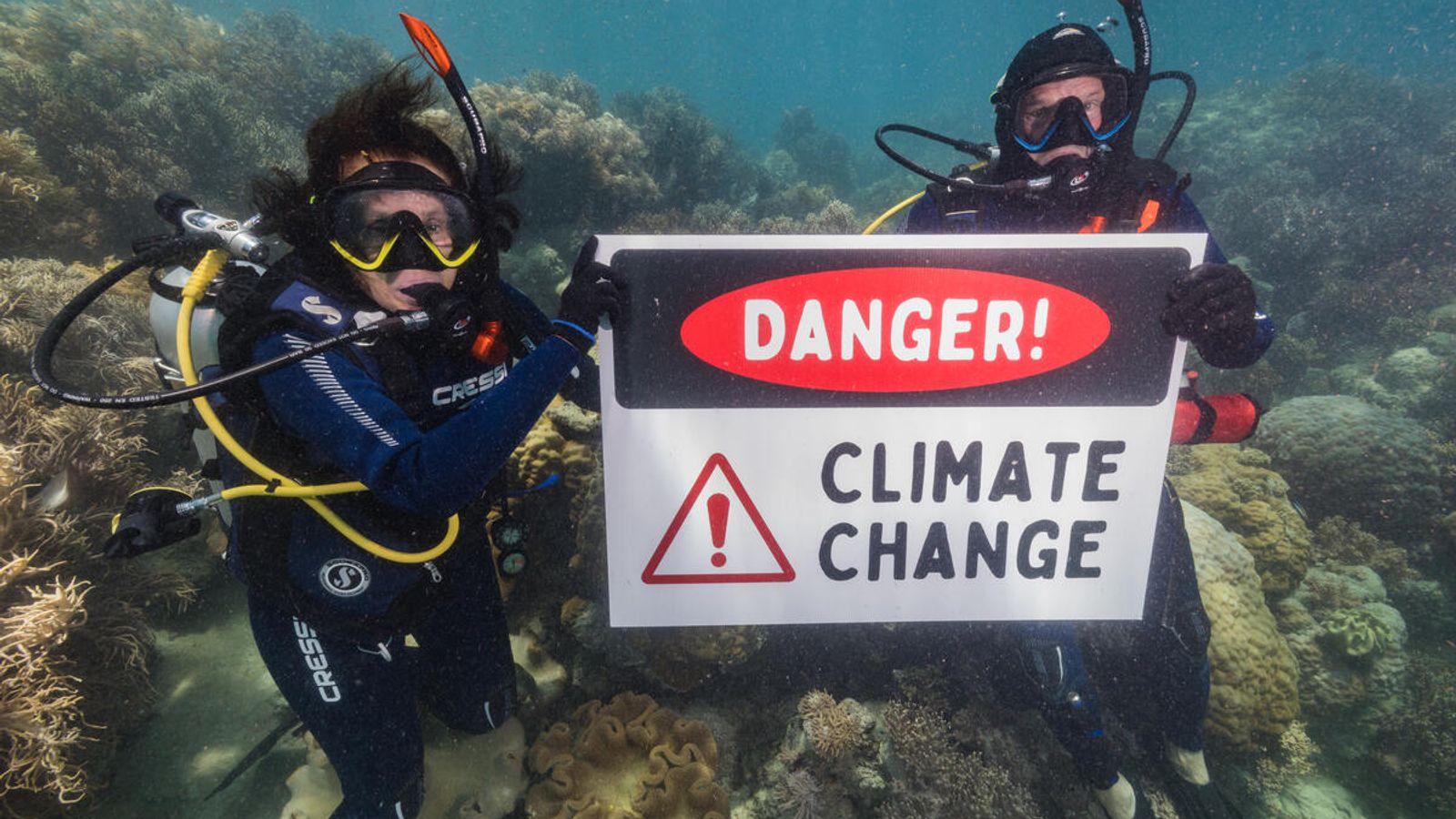Australia’s famous Great Barrier Reef is suffering widespread and severe coral bleaching due to high ocean temperatures two years after a mass bleaching event, a government agency has warned.
The Great Barrier Reef Marine Authority, which manages the world’s largest coral reef ecosystem, said that weather patterns over the next few weeks will be “critical in determining the overall extent and severity of coral bleaching across the Marine Park”.
“Bleaching has been detected across the Marine Park – it is widespread but variable, across multiple regions, ranging in impact from minor to severe,” the authority added.
A warming planet means a warming ocean, and a change in water temperature as little as two degrees Fahrenheit can cause coral to drive out algae.
Coral bleaching is significant because once corals die, reefs rarely come back, and with few corals surviving, the entire reef ecosystems which people and wildlife depend on deteriorate.
The reef has suffered significantly from coral bleaching caused by unusually warm ocean temperatures in 2016, 2017 and 2020.
Greenpeace said the severe and widespread coral bleaching was evidence of the Australian government’s failure to protect the coral from the impacts of climate change.
Facebook sued over ‘scam celebrity crypto ads’
Scientists have discovered a microscopic ocean predator with a taste for carbon
Australia floods: Baby trapped for 24 hours saved moments before choking on mud
“This is a sure sign that climate change caused by burning coal, oil and gas is threatening the very existence of our reef,” Greenpeace Australia Pacific climate impacts campaigner Martin Zavan said in a statement.
In July last year, the Australian coral reef was able to garner enough international support to defer an attempt by UNESCO, the United Nations’ cultural organisation, to downgrade the reef’s World Heritage status to “in danger” because of damage caused by climate change.
The governing body will return to the World Heritage Committee’s agenda at its next annual meeting in June, and a United Nations delegation will inspect the reef’s health next week.






















